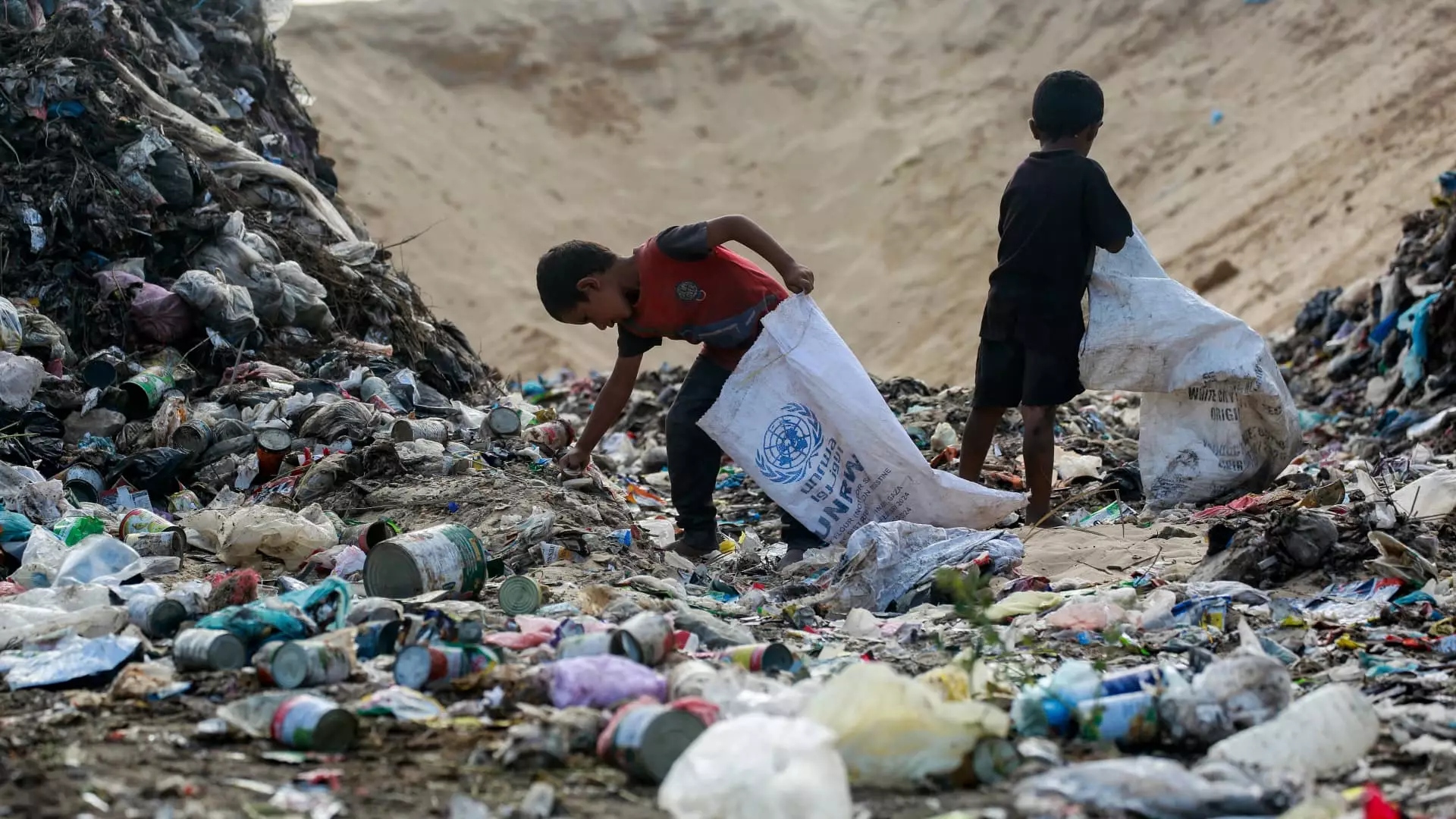The Biden administration finds itself in a precarious position, seeking to maintain unwavering support for Israel while simultaneously addressing the escalating humanitarian crisis in Gaza. This tension underscores the complexities of U.S. foreign policy, particularly in a region fraught with conflict and historical grievances. Recently, the administration issued a rather stern warning, indicating that if the humanitarian conditions in Gaza do not improve in the next 30 days, it may reconsider military assistance to Israel. This move reflects a growing concern within the U.S. about the humanitarian toll of ongoing military actions and the broader implications for American values and bipartisan support.
In a pointed letter sent to Israeli officials, including Defense Minister Yoav Gallant and Strategic Affairs Minister Ron Dermer, Secretary of State Antony Blinken and Defense Secretary Lloyd Austin outlined the U.S. government’s expectations regarding the flow of humanitarian aid into Gaza. The letter highlights a clear commitment to monitoring Israel’s actions to ensure they do not hinder the delivery of U.S. humanitarian assistance. The insinuation that military assistance could be affected if conditions do not improve is a significant development, as it represents a more assertive stance from Washington and acknowledges the pressing humanitarian necessity in Gaza.
Despite the letter’s clear intent, State Department spokesperson Matt Miller refrained from delving into the specific ramifications Israel might encounter if the situation does not ameliorate. This ambiguous response reflects the diplomatic tightrope the U.S. is walking: maintaining strong ties with a key ally while responding to mounting international and domestic pressure for intervention on humanitarian grounds.
A Deteriorating Situation: The Reality in Gaza
The context surrounding this diplomatic exchange is bleak. Reports from the Hamas-run Gaza Ministry of Health indicate that violence is escalating, with significant casualties reported on a daily basis. As of now, more than 42,000 individuals have reportedly lost their lives since the outbreak of hostilities on October 7, 2023. Such figures render the situation in Gaza critical, demanding urgent and effective responses. The ongoing military operations, described by some organizations as an assault on the civilian populace, are creating a humanitarian crisis that calls into question the moral and ethical foundations of supporting Israel unconditionally.
Simultaneously, the U.S. continues to bolster Israel’s military capabilities, underscoring the complexities of the relationship. The recent deployment of an advanced anti-missile system and American personnel to Israel amidst rising tensions in the Middle East exemplifies the duality of U.S. actions. While the Biden administration expresses concern for humanitarian issues, it simultaneously reinforces military support, positioning itself in a way that might appear contradictory.
This juxtaposition also raises questions about accountability and the moral justification of military aid. As pro-Palestinian organizations intensify calls for global action against what they describe as a disproportionate assault, the U.S. finds itself at a crossroads, where its foreign policy decisions not only impact international relations but also reverberate domestically among constituents who expect ethical coherence from their leadership.
Seeking a New Direction: Public Pressure and Advocacy
The administration’s warning to Israel comes after increased pressure from progressive factions within the Democratic Party and advocacy groups, which have been vocal in their demands to re-evaluate U.S. arms sales to Israel. Groups like IfNotNow argue that the Biden administration is beginning to acknowledge a growing sentiment among the American populace, including Jewish communities, favoring restraint in military support linked to humanitarian considerations.
The call for a ceasefire, as well as a more humane approach to Israeli-Palestinian relations, resonates loudly among many Americans. Progressive organizations are lobbying for a shift in policy that prioritizes human rights and humanitarian aid over military support, suggesting that the current administration could seize this moment to adopt a more balanced stance in one of the world’s most enduring conflicts.
As the humanitarian crisis in Gaza unfolds, the Biden administration stands at a critical juncture. The recent warning issued to Israeli officials serves as a significant indicator of the growing urgency to address humanitarian concerns while navigating the complexities of U.S.-Israel relations. The administration’s decisions in the coming weeks will not only shape the immediate reality in Gaza but will also determine the trajectory of U.S. foreign policy in the region for the foreseeable future. The challenge lies in balancing military support with ethical considerations, a task that requires both courage and clarity in vision.


Leave a Reply